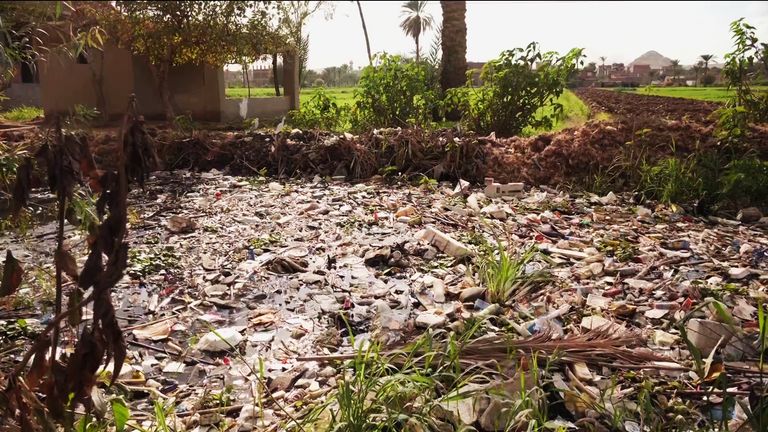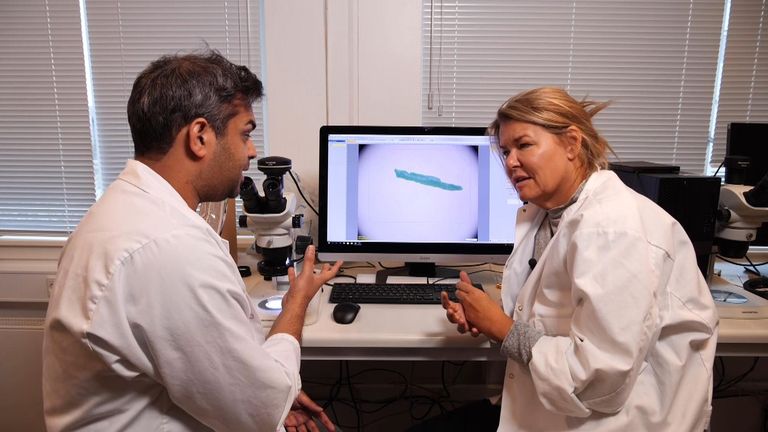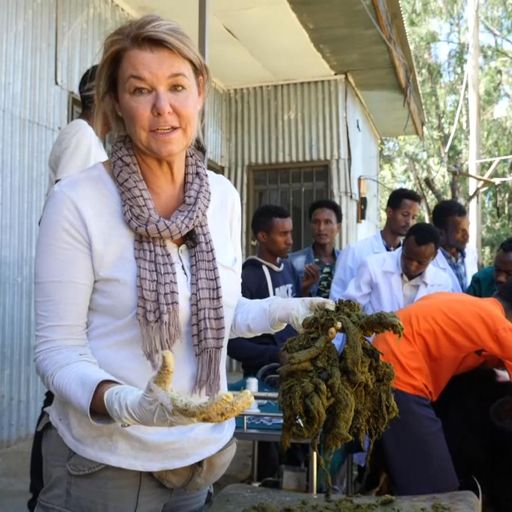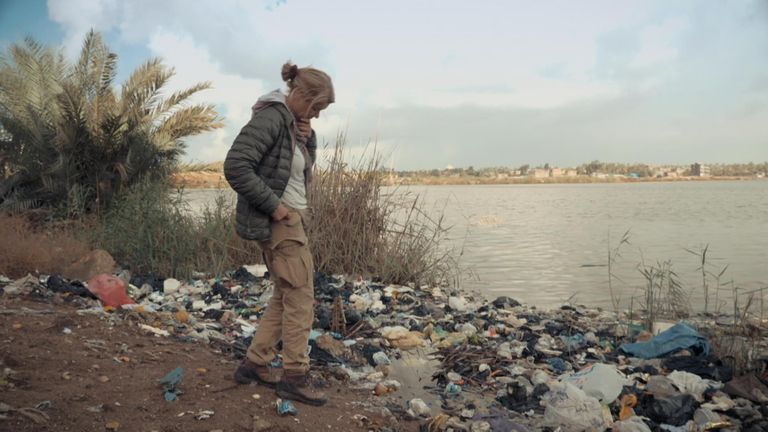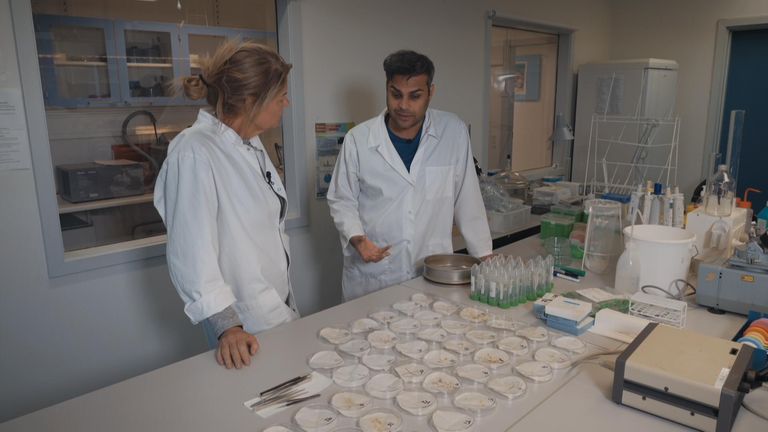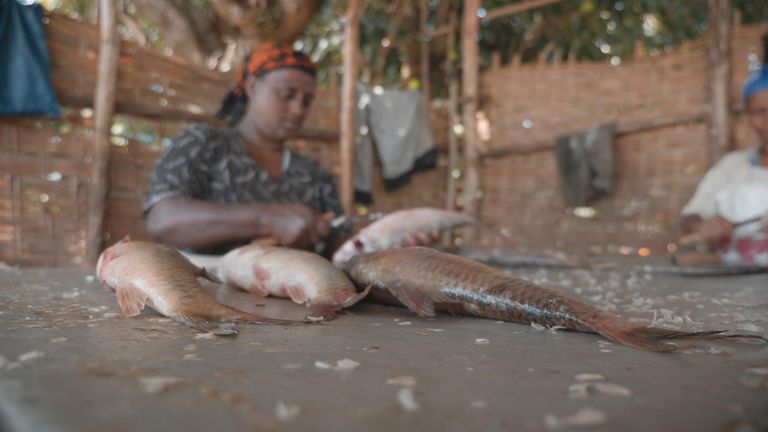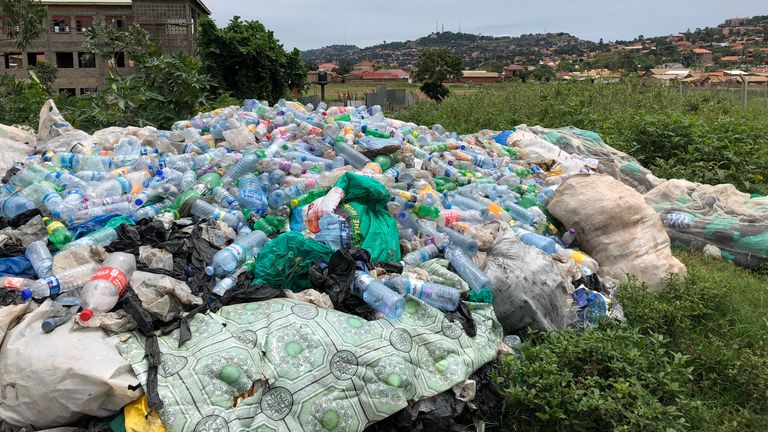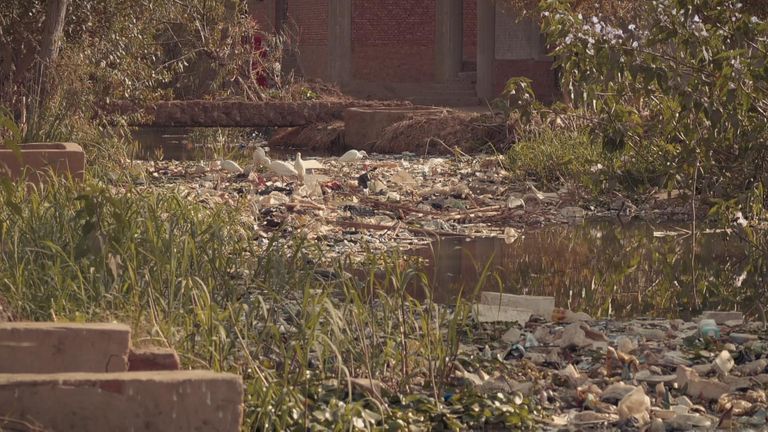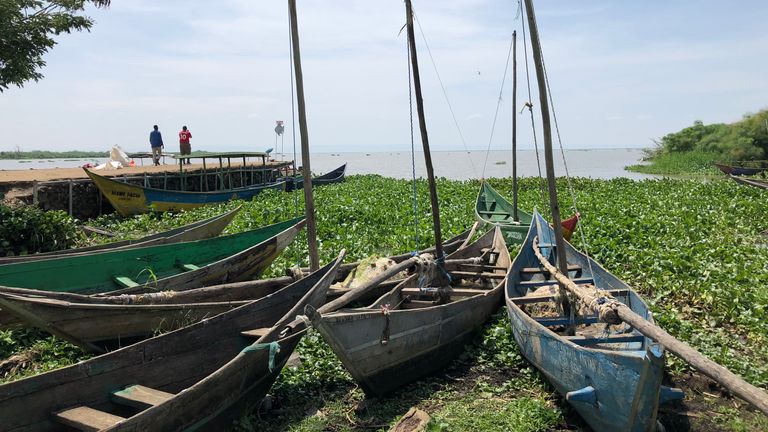Plastic Nile: Three-quarters of fish in world's longest river contain microplastics
Sky News has carried out scientific research into plastic pollution in the River Nile, focusing on plastic found inside fish guts.
Monday 1 June 2020 20:48, UK
Sky News has carried out the first ever scientific research into plastic pollution in the River Nile - and discovered that a staggering three-quarters of the fish analysed contained microplastics.
The exclusive study - which is the only one of its kind in the world - was done in secret laboratories, alongside scientists who if discovered, would almost certainly face jail or other severe punishment.
We are keeping them anonymous because of the risk to their safety as a result of their work.
The research was headed and overseen by a British scientist based in Denmark. His findings - which have been peer-reviewed and published - will alarm those worried about the implications of plastic getting into the human food chain.
It signals the urgent need for more studies into the effects of plastic pollution in fresh water rivers - and cries out for far more focus on the impact that contaminated fish are likely to have on the millions and millions of people dependant on Nile fish for their livelihoods and sustenance.
An investigative team from Sky News spent more than two months travelling along the length of the Nile, gathering visual evidence and testimony from experts, farmers, fishermen, politicians, scientists and even vets in a string of countries dotted along or dependant on the world's longest river.
We found the longest river in the world and its tributaries extensively polluted all along the route from its source in Lake Victoria to where it eventually empties into the Mediterranean Sea.
The Sky team worked in close collaboration with Dr Farhan Khan, whose full peer-reviewed research paper is here.
Dr Khan has extensive experience and oversaw all the research, working with a small team across two continents. His team collected samples of two of the Nile River's most common fish - the Nile tilapia and catfish - from Dahab Island in the centre of the Egyptian capital, Cairo.
The initial research was carried out secretly in hidden labs in Egypt. This was necessary because in the past, the Egyptian authorities have jailed those who've spoken in derogatory terms about the Nile or even questioned its cleanliness.
All of those involved in the research in Egypt requested anonymity and asked us not to identify where the initial studies were carried out for fear of repercussions against them.
But without their considerable bravery, expertise and help, this scientific study could not have taken place.
The study focused on just the larger pieces of plastic found inside the fish guts.
Some of the plastics were of sufficient size so they could be seen by the naked eye. This led the scientists to suspect it is highly likely that a study of even finer particles would have found an even higher degree of plastic pollution in the fish guts.
Dr Khan said the density of plastic in the fish and the large percentage of fish affected had very worrying implications on the future of all marine life in the Nile.
"A collection of these types of fibres can really have an impact on how well a fish is able to find and digest its food," he said.
"Which could have a knock-on effect on, for example, feeding behaviour and nutrient uptake. This in turn could affect growth and reproduction, and therefore the fish population itself."
Microplastics (which is the breaking down of plastic from for example bottles, tubs and other household waste) act like hosts providing a "body" which attracts toxic substances and which those toxins can bind to.
It means there's an increased danger that pollutants and pesticides which bind to the microplastics, also end up in the fish guts.
Dr Khan insists there's an urgent need to investigate the implications of this - not just the long-term effects on fish health but on the humans who are consuming the contaminated fish.
He explained: "In most water systems… there's a class of pollutant which includes pesticides which don't mix well with water - so whenever they are in the water they are looking for materials to combine with and plastics provide that - so all these surfaces provide areas for contaminants to bind… what's happening is the fish are feeding on plastics and they're ingesting these plastics and these contaminants are making their way into the fish."
Dr Khan has a history as a scientific pioneer. He conducted the first investigation into plastic pollution in freshwater fish in the African Great Lakes a few years ago when he studied fish in Lake Victoria.
:: Listen to the Daily podcast on Apple Podcasts, Google Podcasts, Spotify, Spreaker
Then, plastics were discovered in 20% of the fish his team analysed. (The research paper on plastic pollution in fish in Lake Victoria can be read in full here).
Despite a lot of research on the presence of microplastics in the world's oceans, there appears to be a scarcity of studies on their effect on the planet's rivers - and almost none done in Africa.
Dr Khan appears to be the sole scientist to have conducted any research on the effect of plastic pollution on freshwater fish on the whole of the continent of Africa.
An estimated 250 million people rely on the Nile, with the longest river in the world running through 11 countries on the African continent.
Watch The Plastic Nile on Sky Documentaries at 9pm on Monday 1 June

